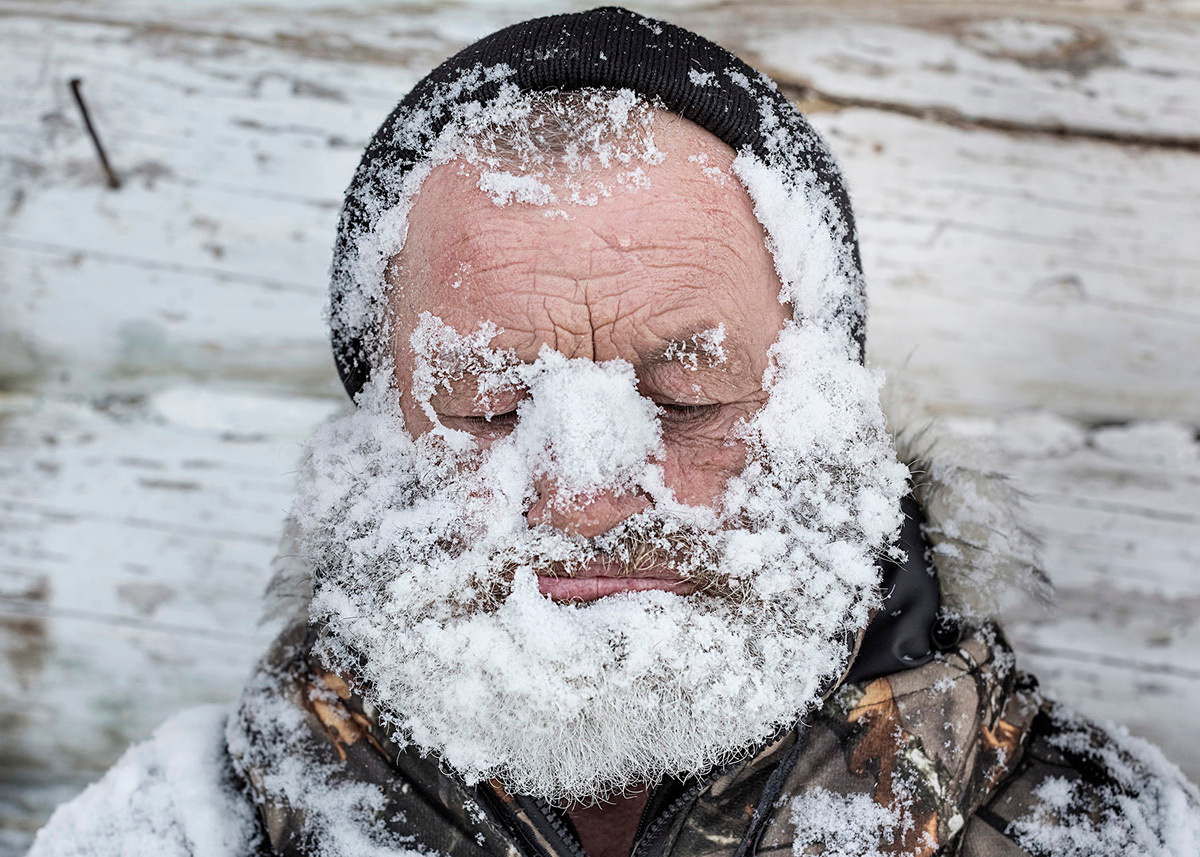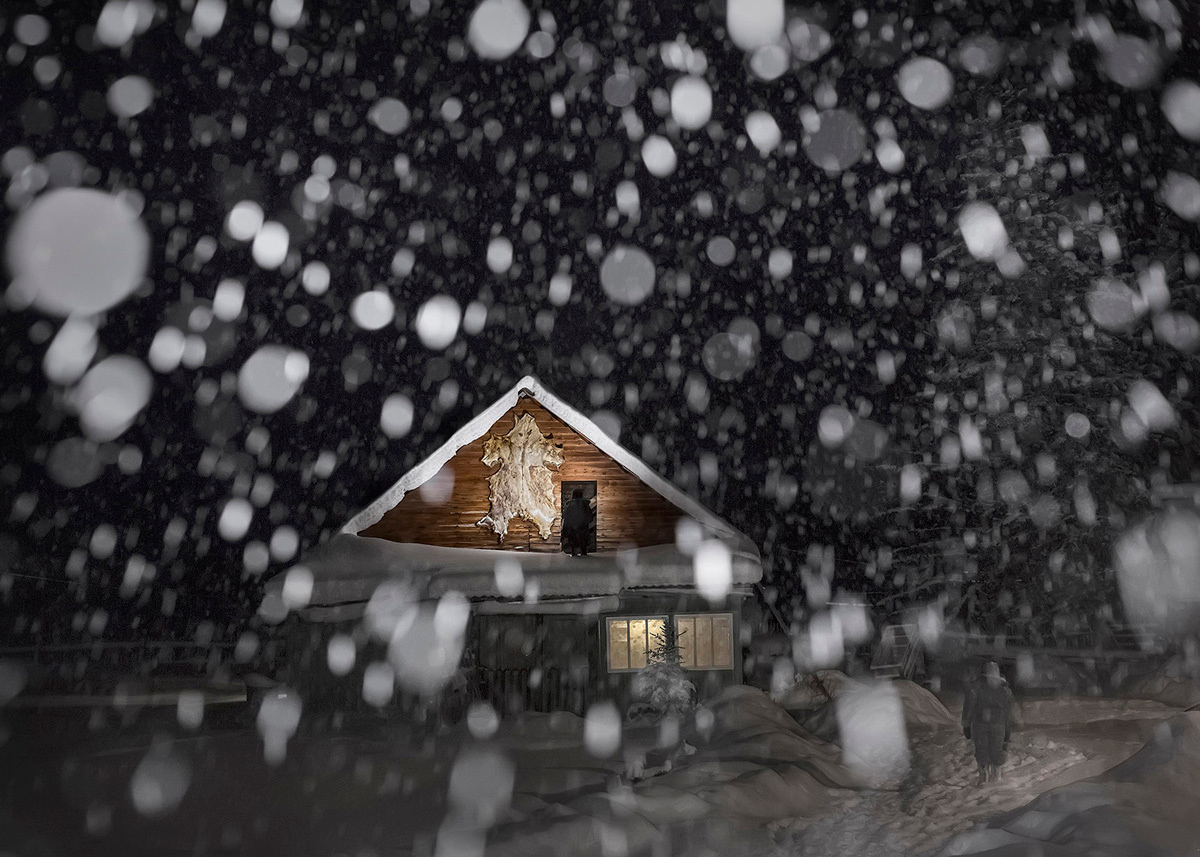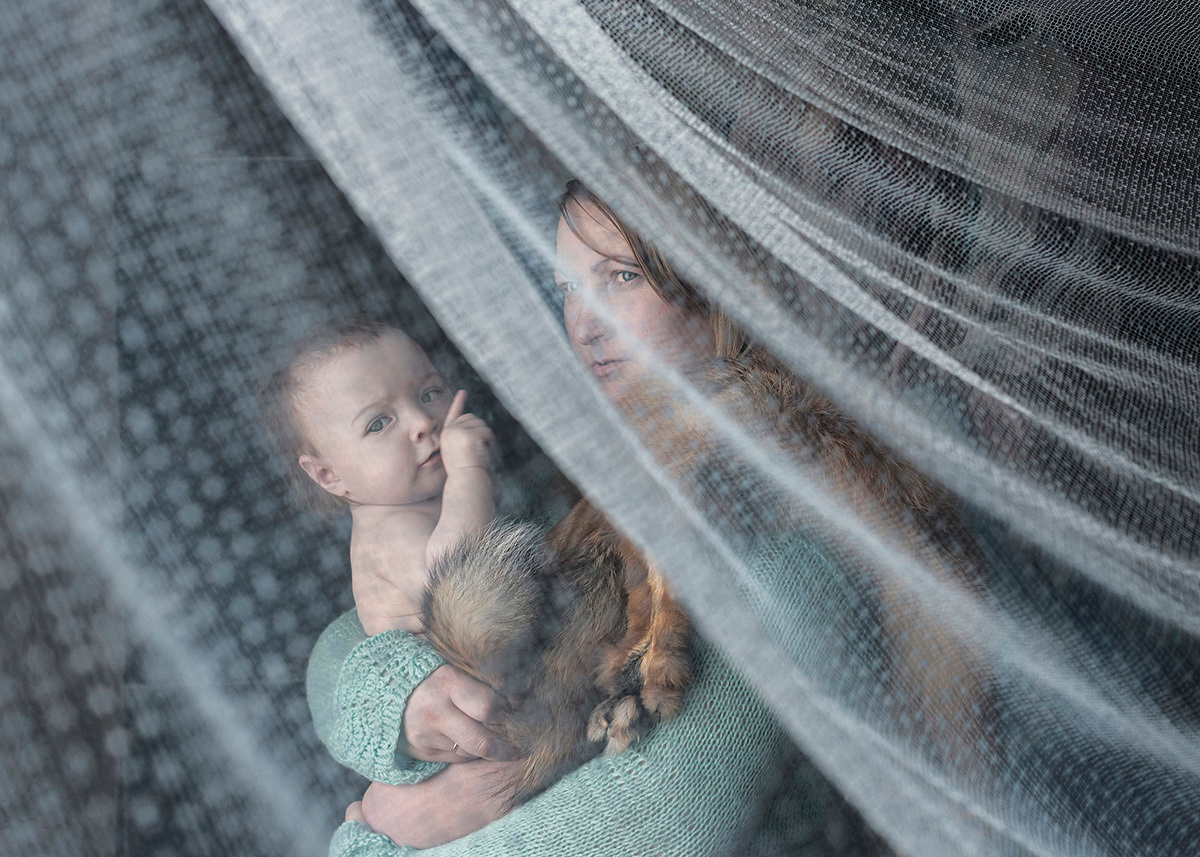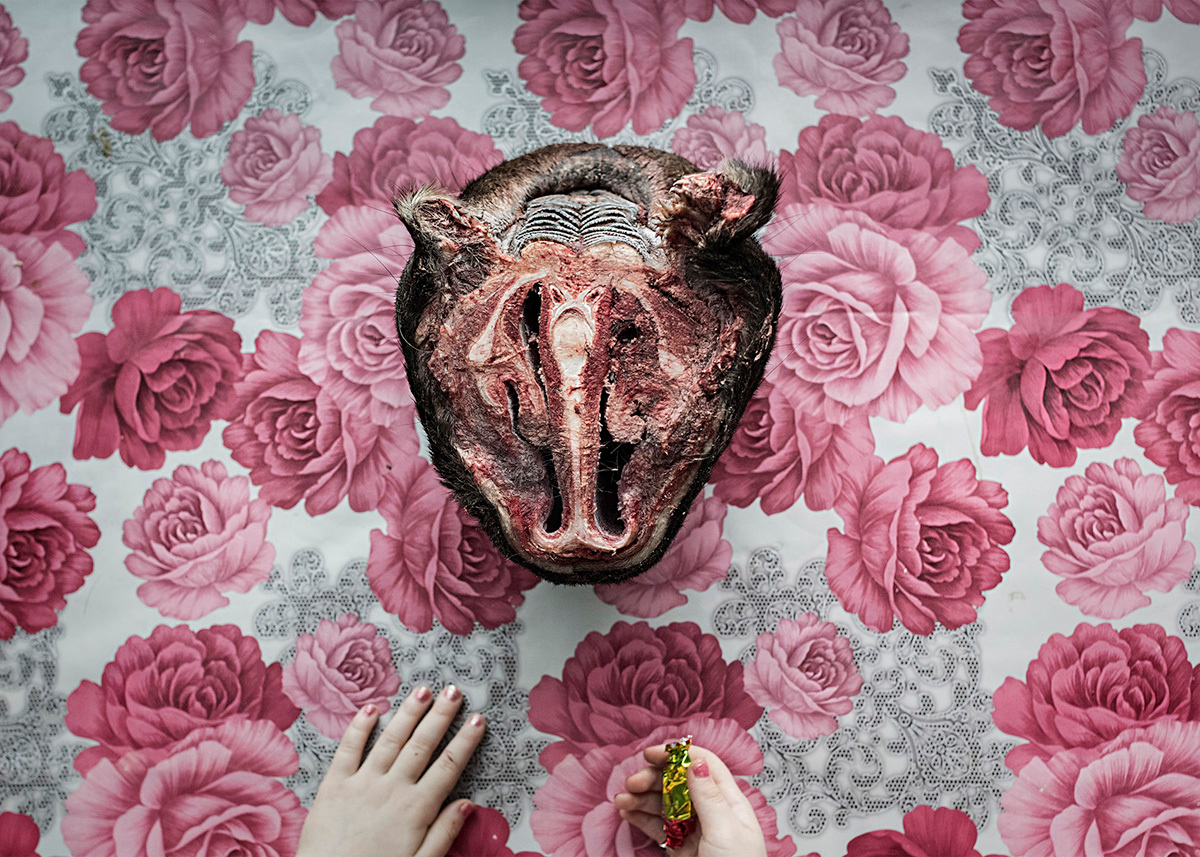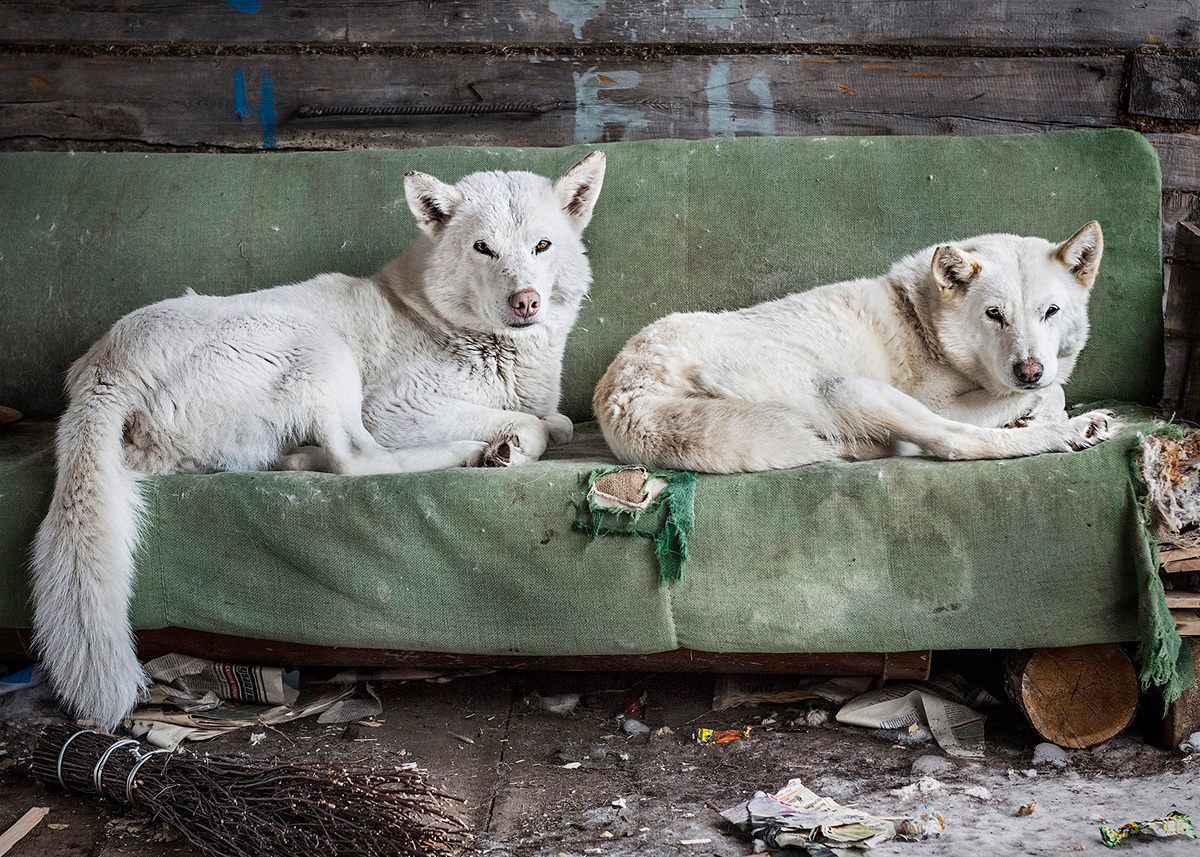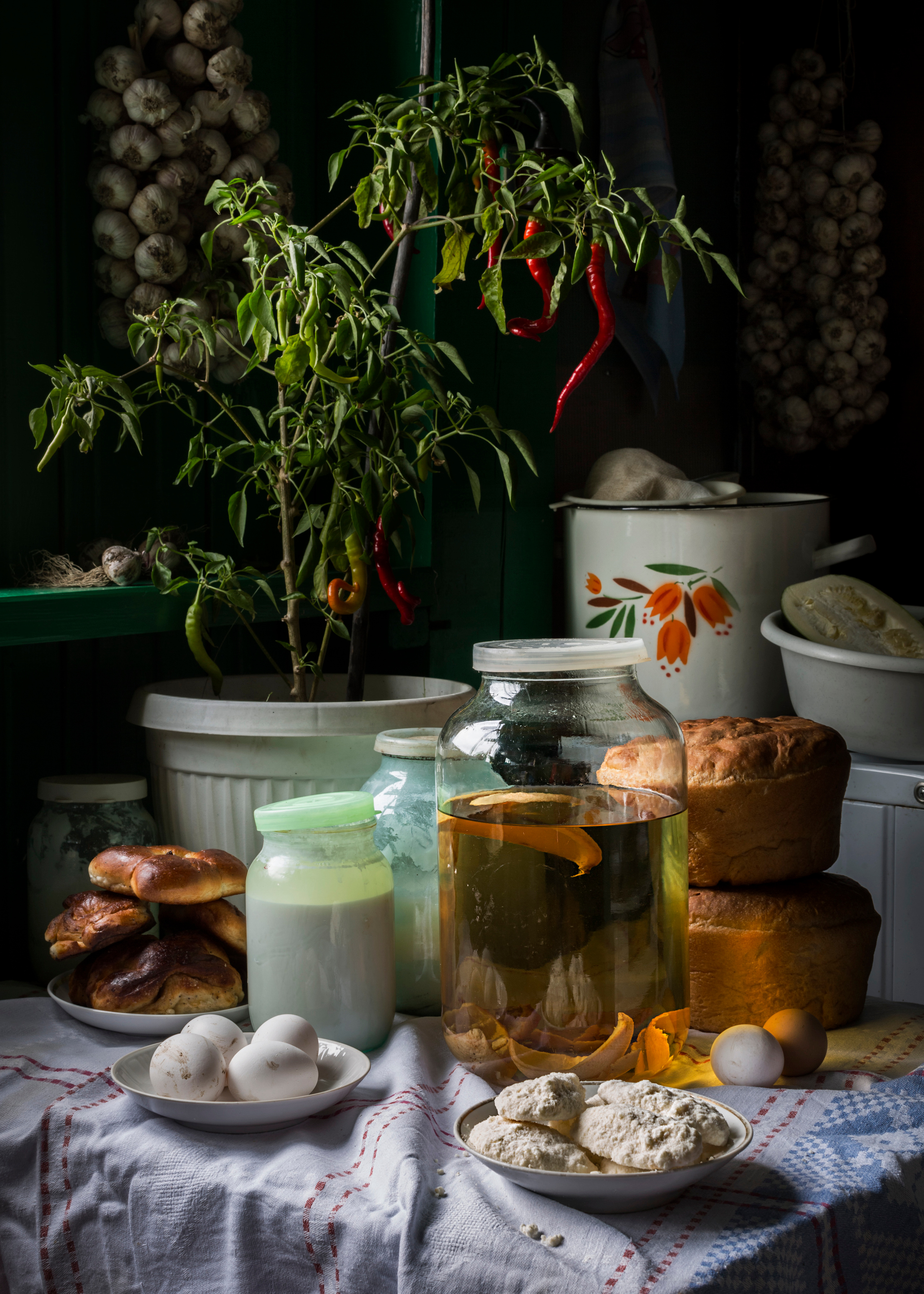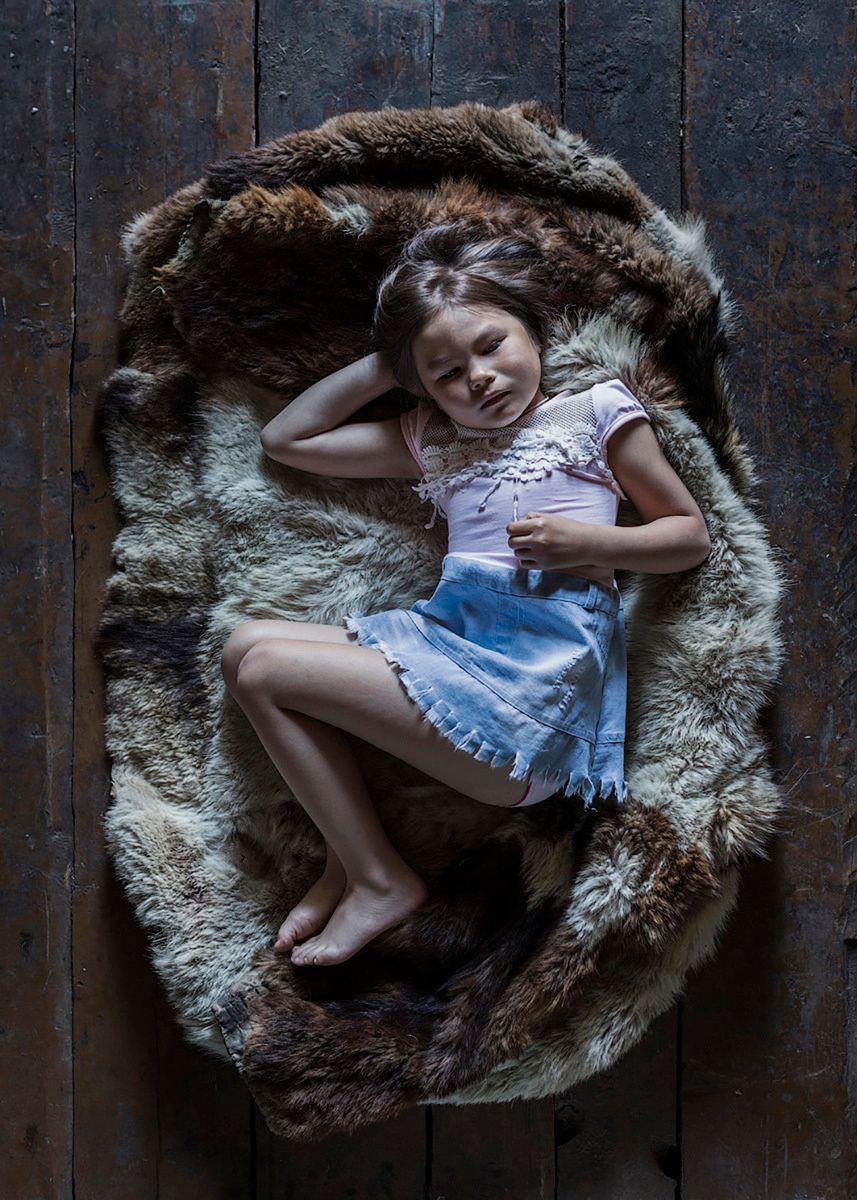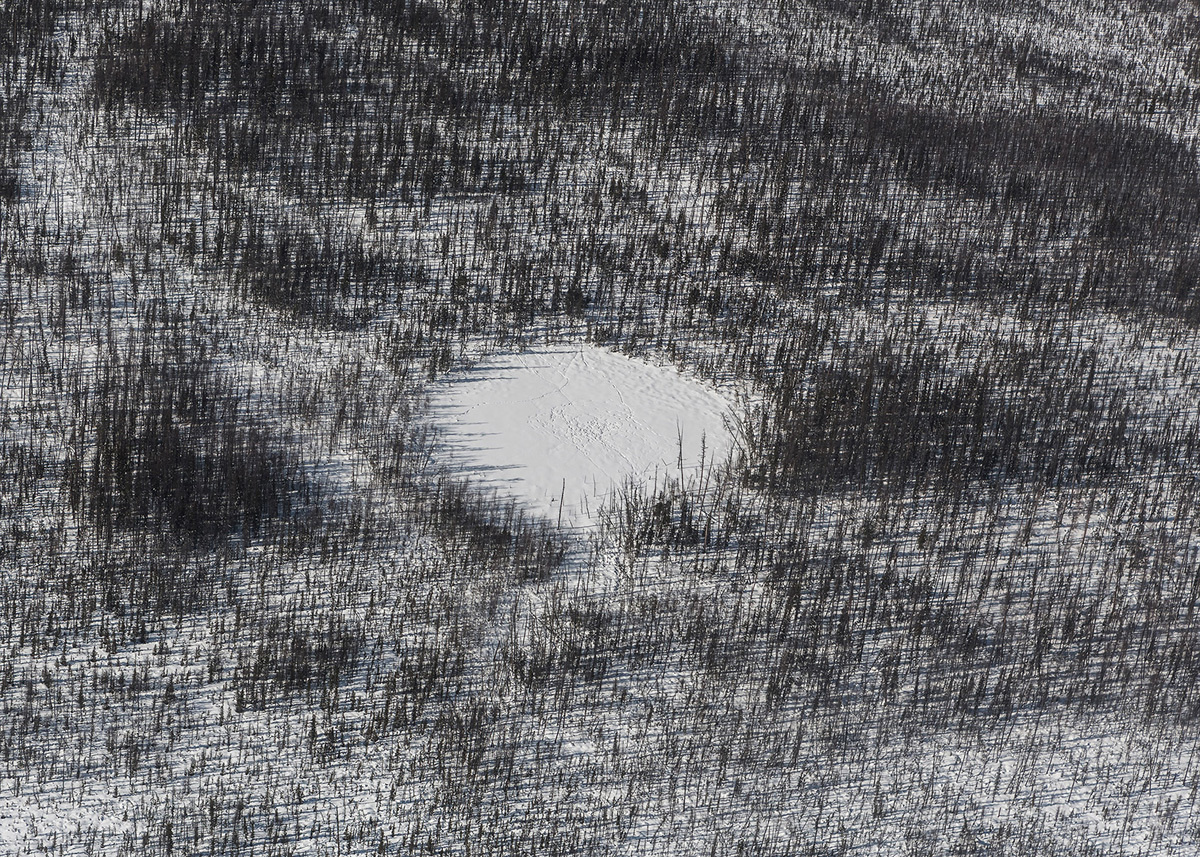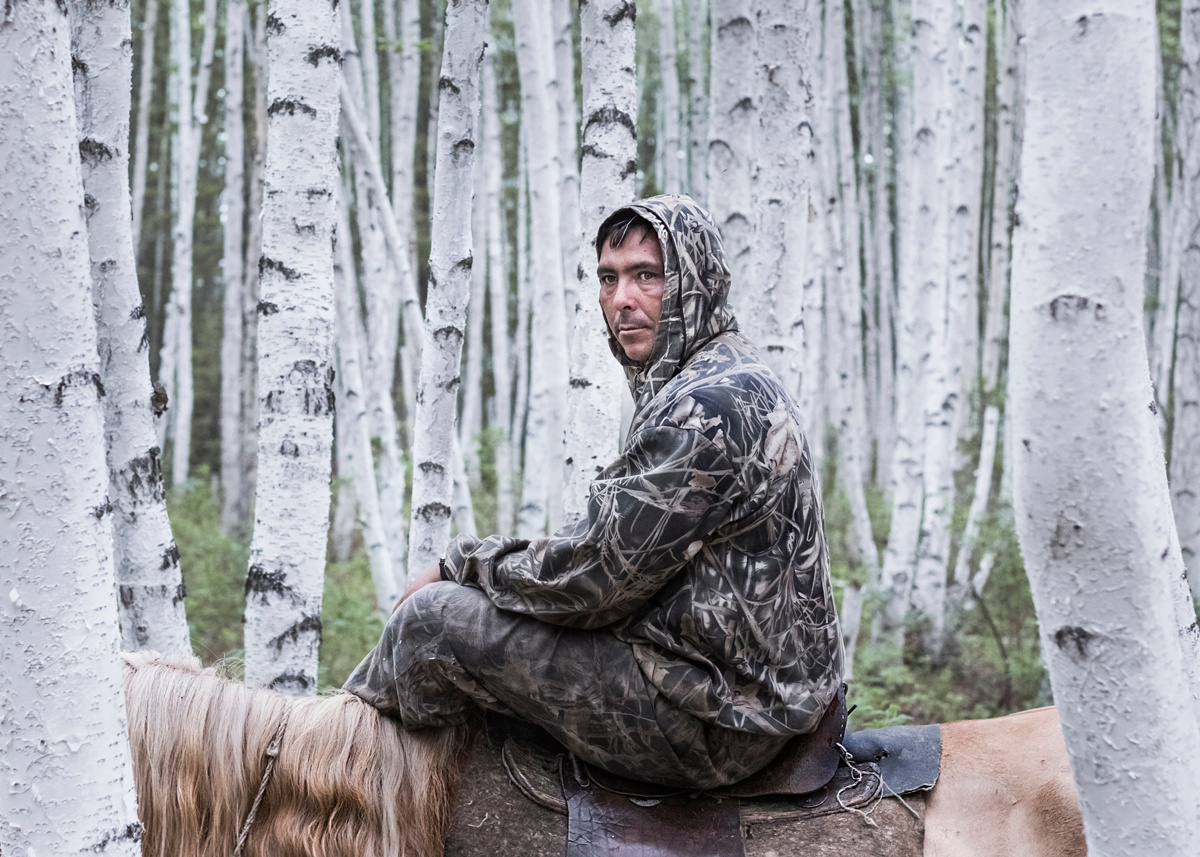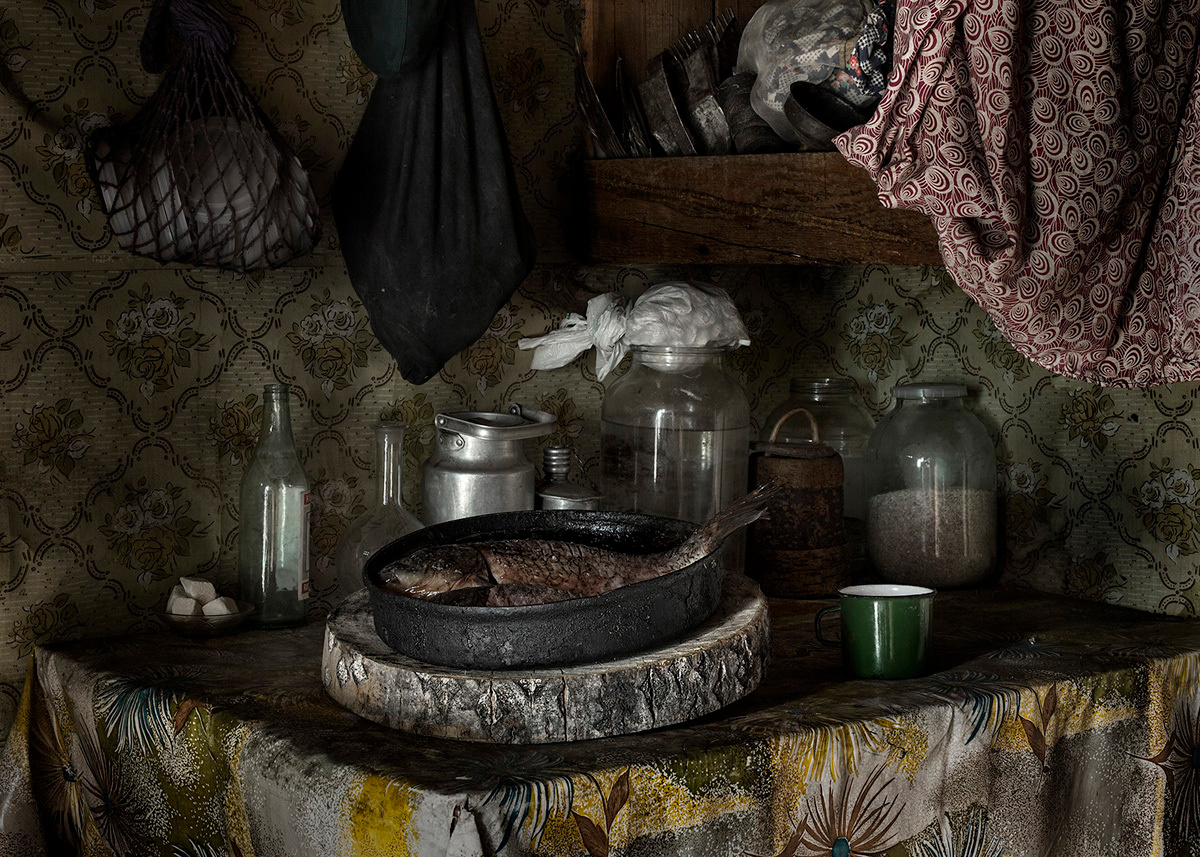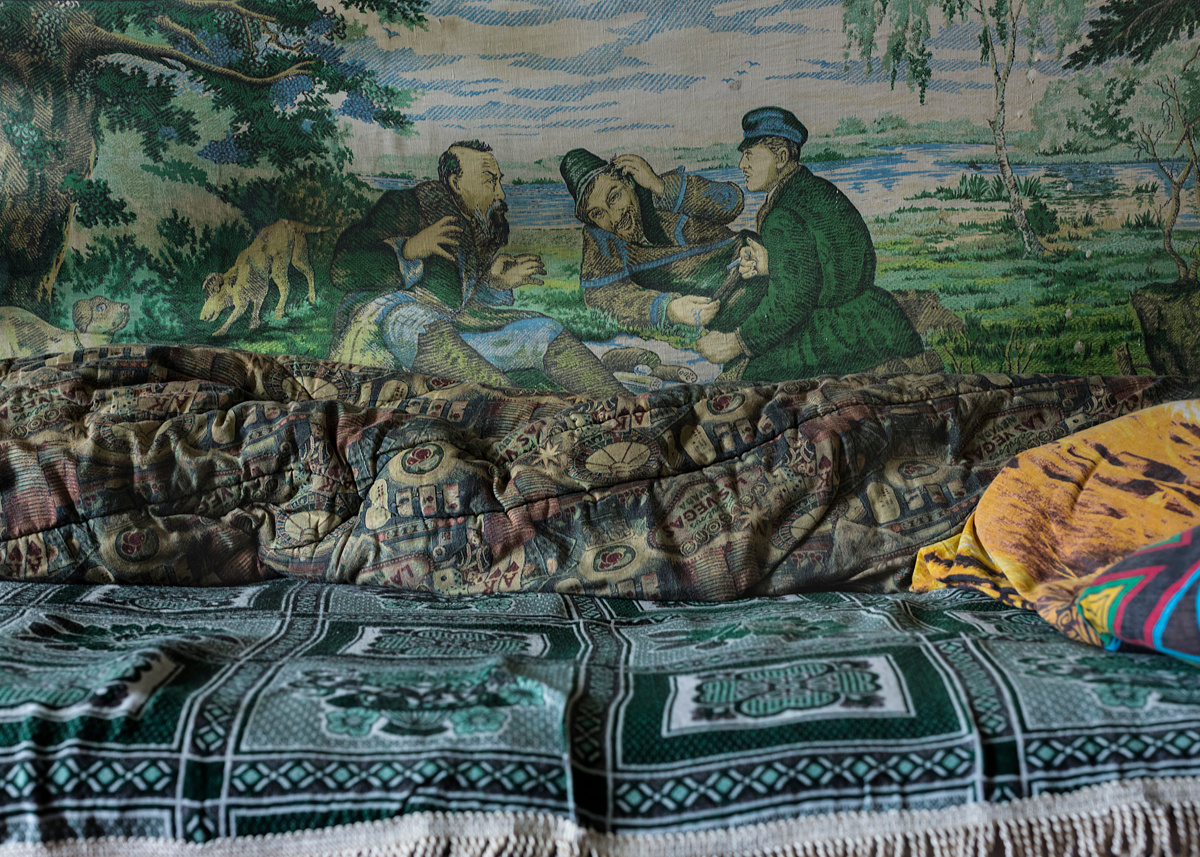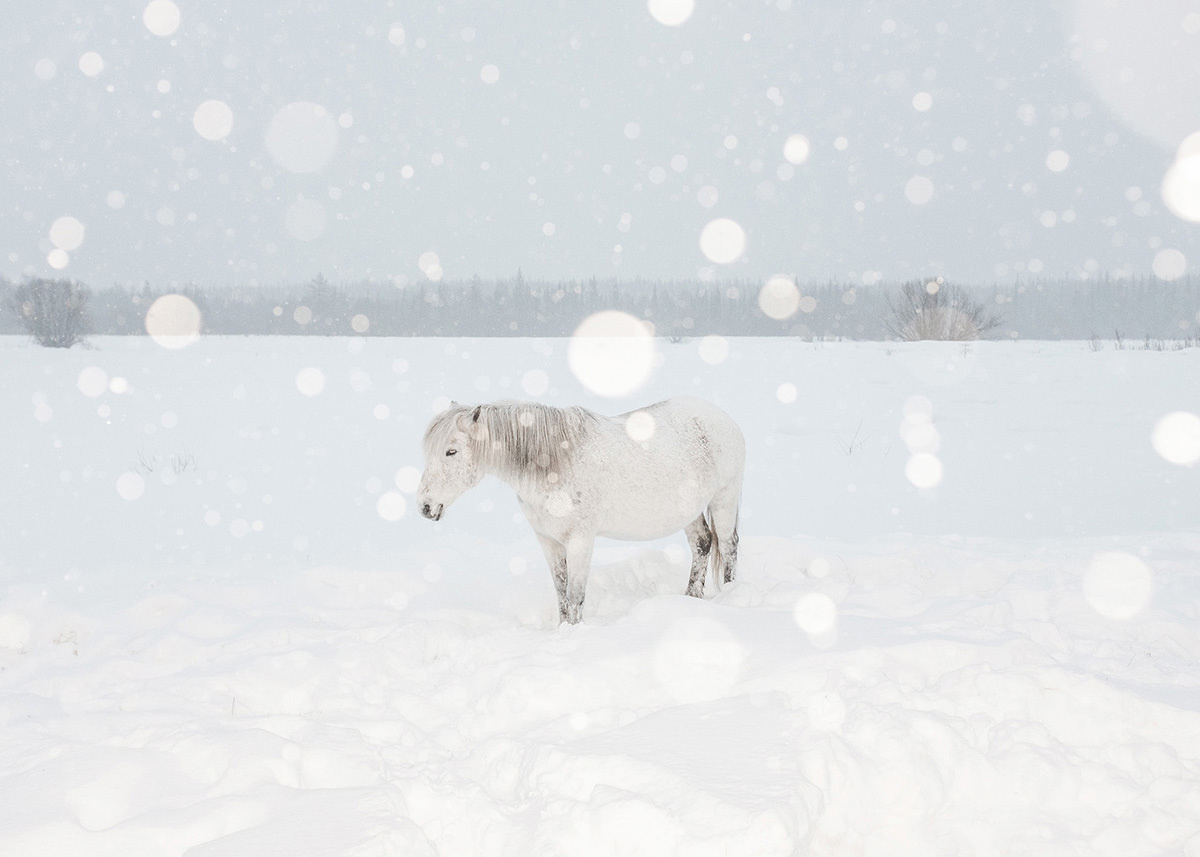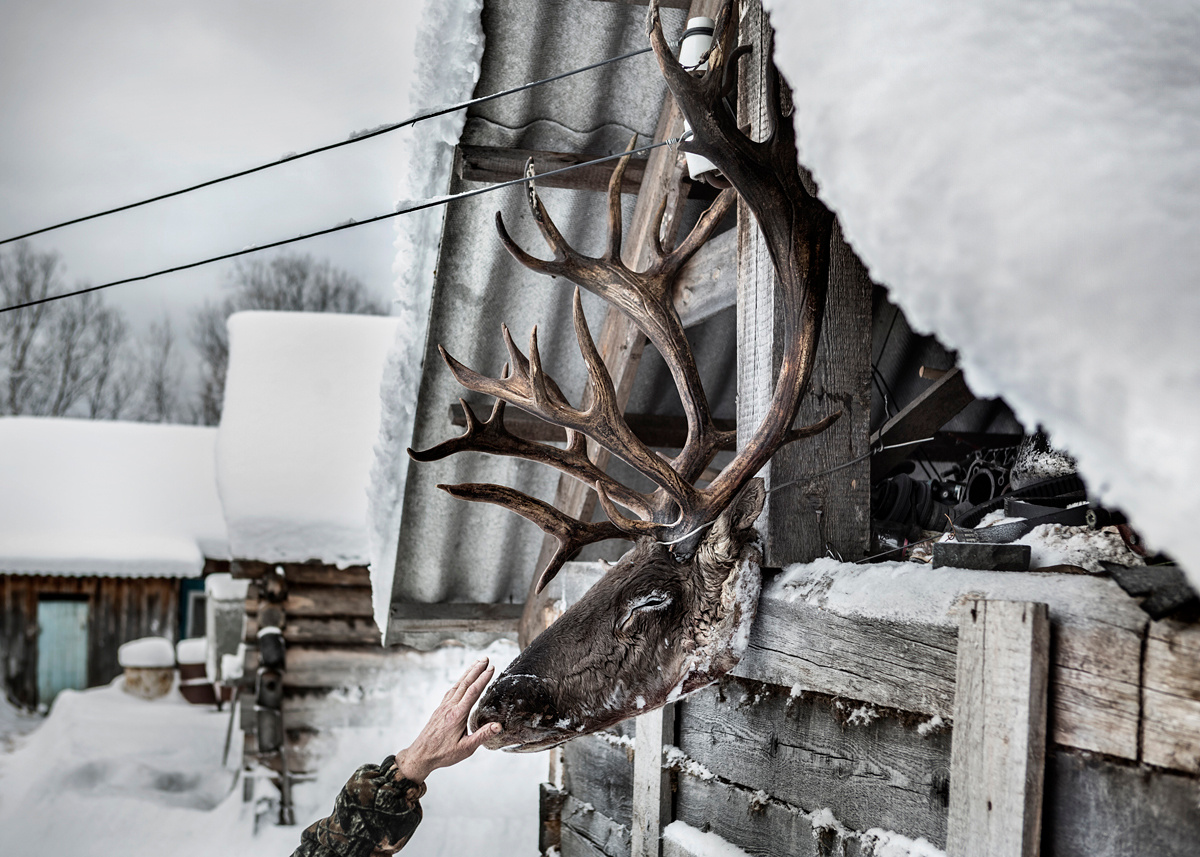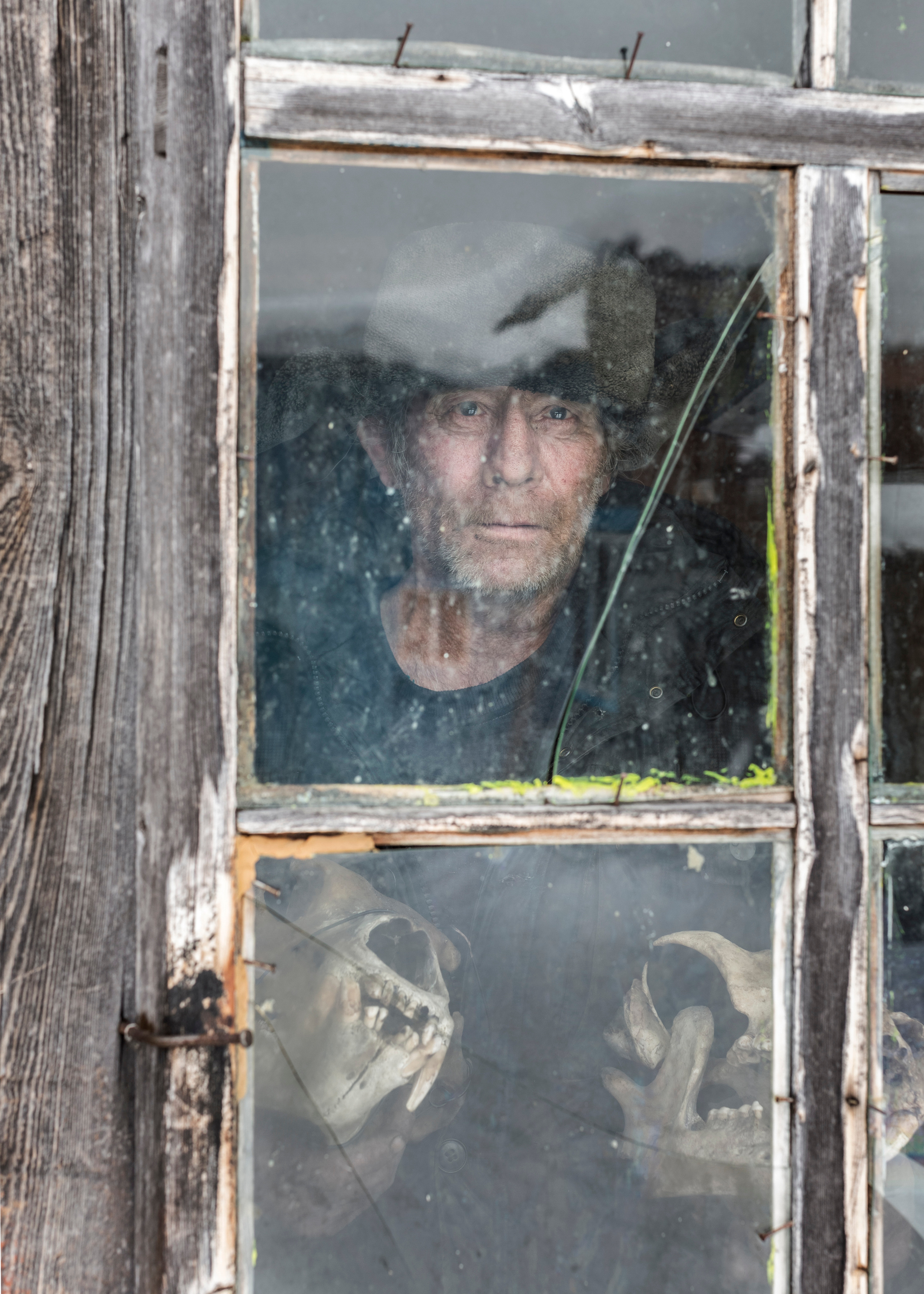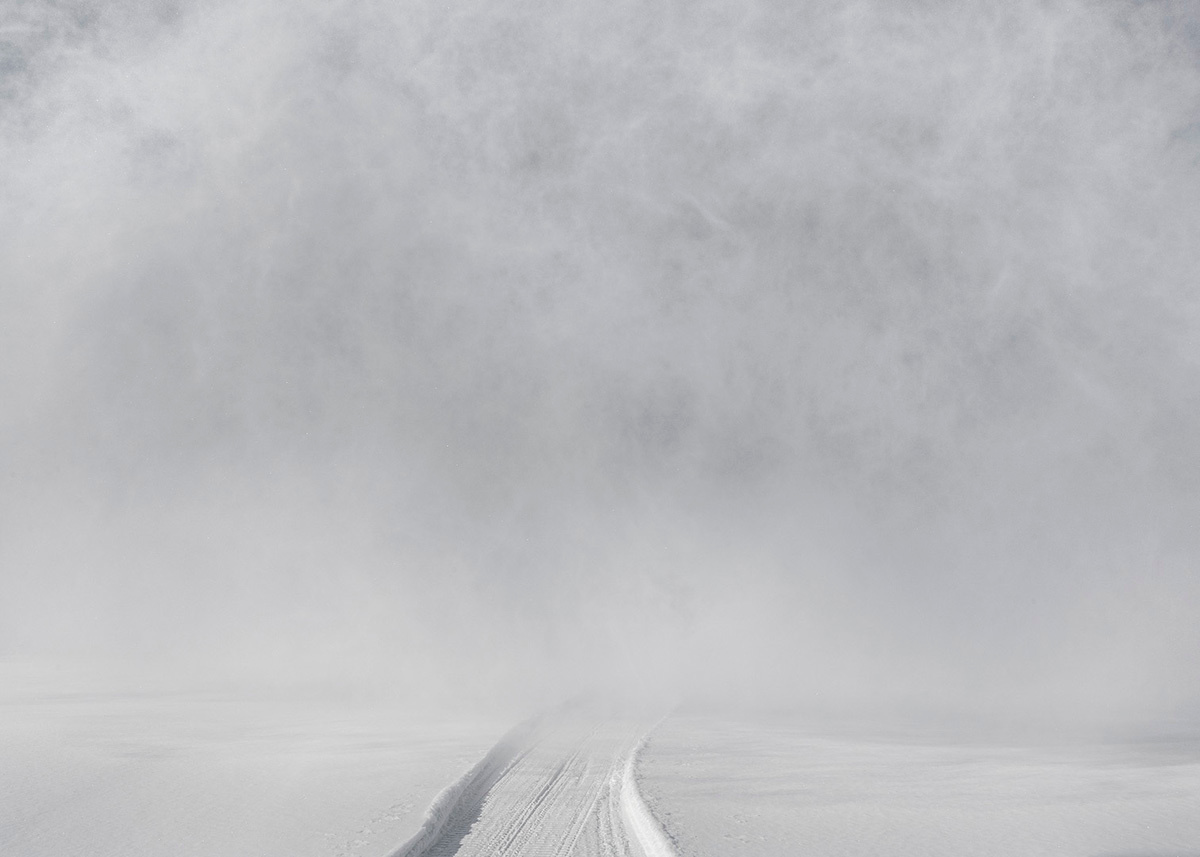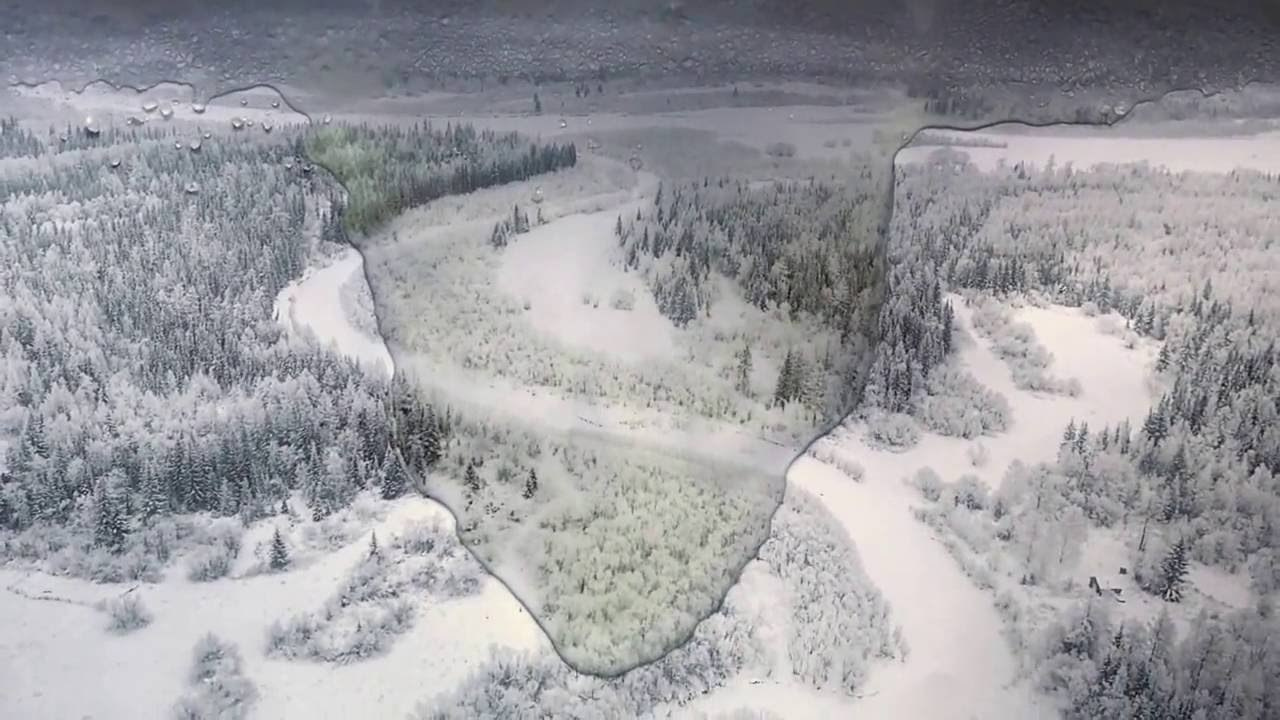Атлас первого снега (2015 — 2025)
Архетипический образ изолированного сообщества через историю полиэтничной семейной группы охотников и рыболовов, живущих в труднодоступных условиях Крайнего Севера.
Будущая книга, мобильная игра и выставка «Атлас первого снега» посвящены истории семьи художницы на Крайнем Севере. В них задаются вопросы о выживании и изоляции в экстремальных природных условиях. Через вопросы социологии питания Елена Аносова затрагивает темы границ, климатических изменений, изоляции и трудного наследия. В 2025 году будет десять лет труда над «Атласом первого снега», и основным его логическим завершением и результатом будет иллюстрированный нон-фикшн.
C 2015 года Аносова собрала
семейный архив из более чем 300 снимков советского и пост-
советских периодов. В результате ряда экспедиций художница
создала оригинальную съемку (более ста изображений), сюжетно
взаимодействующую с архивными изображениями, коллекцией
семейных артефактов и объектов (карты, черепа баргузинких
соболей и другие предметы).
«Всегда есть надежда что путь будет найден, что будет еда, что все вернуться
домой, что семья будет вместе, что зима наконец-то закончится, а чудовища
будут побеждены. Мы сами строим свои историю и сами выбираем надежду.
Всегда есть надежда, на удачное завершение, что будет время и возможность
рассказать эти истории своим детям, а они своим».
Около 300 лет назад предки Елены Аносовой основали небольшое поселение на Крайнем Севере, ее семья до сих пор живет там и их около 100 взрослых человек. Это полиэтничное русско-тунгусское сообщество охотников. Все являются друг другу родственниками, если не по крови, то по соседству или женитьбе. Ритуалы особых отношений с природой сохраняются столетиями, пейзажи и места такие же как и несколько веков назад. Современная цивилизация влияет на все, и это изолированное небольшое сообщество сохраняет свою идентичность благодаря труднодоступности и суровости климата. Через изображения неизменных веками ландшафтов и архетипических образов семьи Аносова задает такие вопросы, как: кто мы, откуда и самый важный для будущих надежд — куда мы идем?
Отдельная глава «Атласа первого снега» — «Грузди, кедровые и брусника». На этих натюрмортах зафиксированы ингредиенты для традиционных рецептов северной кухни. Ни на одном изображении нет грибов, ягод или орехов. В 2018 и в 2019 годах были такие сильные лесные пожары, что дым дошел до другого континента. Кедр плодоносит через 60 лет. Нужны десятилетия для восстановительных процессов грибниц и брусничных кустов.
If you want to see additional images, videos, archives, and sculptures — please contact me

